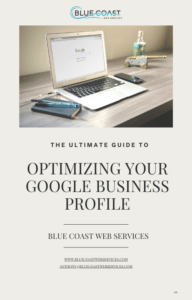The Importance of Online Presence for Small Businesses
In today’s digital age, having a strong online presence is essential for small businesses to thrive and stay competitive in the marketplace. By establishing an online presence, businesses can reach a wider audience and build trust and credibility with potential customers.
Reaching a Wider Audience
One of the key benefits of having an online presence is the ability to reach a larger audience. With over 2.1 billion unique online shoppers, the internet provides a vast pool of potential customers waiting to be tapped into (LinkedIn). By being visible online, small businesses can expand their reach beyond their physical location and attract customers from different geographical areas.
Through web design and marketing efforts, businesses can optimize their online presence to target specific audiences. This allows them to tailor their messaging and offerings to attract customers who are most likely to be interested in their products or services. By reaching a wider audience, small businesses have the opportunity to increase their customer base and grow their revenue.
Building Trust and Credibility
An online presence also plays a crucial role in building trust and credibility with potential customers. In today’s digital landscape, businesses that have a professional website and are visible online are often perceived as more trustworthy (LinkedIn). By having a well-designed website that showcases their products or services and provides relevant information, small businesses can establish themselves as credible and reliable sources.
A professional website conveys to potential customers that the business is legitimate and takes their online presence seriously. It allows businesses to highlight their expertise, showcase testimonials from satisfied customers, and provide detailed information about their offerings. This transparency and accessibility help build trust with customers, making them more likely to engage with the business and make a purchase.
In addition to a website, small businesses can leverage social media platforms to further enhance their credibility. By engaging with customers, responding to inquiries, and sharing valuable content, businesses can foster a sense of community and establish themselves as industry experts. This active online presence helps build trust and loyalty among customers, leading to increased brand awareness and customer retention.
In conclusion, having an online presence is vital for small businesses to reach a wider audience and build trust and credibility. Through a well-designed website and active engagement on social media platforms, businesses can expand their customer base, increase visibility, and establish themselves as trustworthy sources in their respective industries. By embracing the benefits of online presence, small businesses can unleash their potential for growth and success in the digital world.
Building an Effective Website
Creating an effective website is a crucial step in establishing your online presence as a small business. A well-designed website not only showcases your products or services but also provides relevant information to potential customers. Let’s explore these two key aspects of building an effective website.
Showcasing Products or Services
Your website serves as a digital storefront, allowing potential customers to browse and learn about your products or services. It’s essential to showcase your offerings in a visually appealing and informative manner. Here are a few key considerations:
-
High-Quality Imagery: Use high-resolution images that accurately represent your products or services. Clear and attractive visuals can capture the attention of visitors and make a lasting impression.
-
Detailed Descriptions: Provide comprehensive descriptions of your products or services, highlighting their unique features, benefits, and value propositions. This information helps potential customers understand what sets your offerings apart from the competition.
-
Customer Testimonials: Incorporate testimonials or customer reviews to build trust and credibility. Positive feedback from satisfied customers can influence purchasing decisions and give visitors confidence in your business.
-
Call-to-Action Buttons: Include clear and prominent call-to-action buttons that encourage visitors to take the next step, such as “Buy Now,” “Learn More,” or “Contact Us.” These buttons guide visitors towards conversion and help drive business growth.
Providing Relevant Information
In addition to showcasing your products or services, your website should provide relevant information that helps potential customers make informed decisions. Here are some key elements to consider:
-
About Us Page: Share your company’s story, mission, and values. This helps establish a personal connection with visitors and builds trust.
-
Contact Information: Make it easy for visitors to contact you by prominently displaying your contact information, including phone numbers, email addresses, and physical addresses. Consider including a contact form for easy communication.
-
Frequently Asked Questions (FAQs): Anticipate common inquiries and provide answers on your website. FAQs can save time for both you and your customers by addressing common concerns upfront.
-
Blog or Resource Section: Create a blog or resource section where you can share valuable content related to your industry, products, or services. This helps position your business as a trusted authority and can attract organic traffic to your website.
By showcasing your products or services effectively and providing relevant information, your website becomes a valuable asset in attracting and engaging potential customers. Remember, an optimized website can increase organic search traffic, so it’s essential to keep your website up to date and user-friendly. For more guidance on web design and marketing, check out our article on web design and marketing.
Harnessing the Power of Social Media
In today’s digital age, social media platforms have become powerful tools for small businesses to establish and enhance their online presence. Social media platforms such as Facebook, Instagram, and Twitter provide opportunities for businesses to engage with their target audience and build brand awareness (Rock Content). Here, we will explore two key aspects of harnessing the power of social media for small businesses: engaging with the target audience and building brand awareness.
Engaging with the Target Audience
One of the key benefits of social media for small businesses is the ability to directly engage with their target audience. Social media platforms provide a space for businesses to interact with customers, answer inquiries, and address concerns promptly. This level of customer communication helps businesses provide better customer service and build stronger relationships (LinkedIn).
To effectively engage with your target audience on social media, it’s important to:
- Respond promptly: Monitor your social media accounts regularly and respond to customer inquiries and comments in a timely manner.
- Be authentic and personable: Show the human side of your business by using a friendly and approachable tone in your interactions.
- Encourage feedback and conversations: Ask questions, initiate discussions, and encourage your audience to share their thoughts and experiences.
- Provide valuable content: Share informative and engaging content that is relevant to your audience’s interests and needs.
- Use hashtags and mentions: Utilize relevant hashtags and mention other relevant accounts to increase visibility and encourage participation.
By actively engaging with your target audience on social media, you can foster a sense of community around your brand, build customer loyalty, and gain valuable insights that can help you improve your products or services.
Building Brand Awareness
Social media platforms offer an excellent opportunity for small businesses to build brand awareness and reach a wider audience. With effective content and promotion strategies, businesses can create a strong online presence and increase their brand recognition (LinkedIn).
To build brand awareness on social media, consider the following:
- Consistent branding: Maintain a consistent visual identity and tone of voice across all your social media profiles to create a cohesive brand image.
- High-quality content: Share compelling and relevant content that resonates with your target audience. This can include informative articles, visually appealing images, videos, and engaging stories.
- Utilize multimedia: Incorporate a mix of text, images, videos, and infographics to capture your audience’s attention and convey your brand message effectively.
- Encourage user-generated content: Encourage your followers to create and share content related to your brand. This can include testimonials, reviews, and user-generated photos or videos.
- Collaborate with influencers: Partner with influencers or industry experts who align with your brand to expand your reach and tap into their existing audience.
By consistently sharing valuable content, actively engaging with your audience, and leveraging the features of social media platforms, you can actively build brand awareness, increase your brand’s visibility, and attract more potential customers to your business.
Harnessing the power of social media is just one aspect of building an effective online presence for small businesses. It’s important to combine social media efforts with other strategies such as building a well-designed website, leveraging email marketing, and optimizing for search engines to maximize the benefits of your online presence.
Leveraging Email Marketing
In the digital age, email marketing remains a powerful tool for small businesses to communicate with customers and promote products or services. By leveraging email marketing strategies, small businesses can effectively engage with their target audience and boost their online presence.
Communicating with Customers
Email marketing campaigns offer a cost-effective way for small businesses to stay connected with their audience and foster customer loyalty. Through regular newsletters, updates, and personalized content, businesses can directly communicate with their customers, keeping them informed about new offerings, promotions, and relevant news (source). By providing valuable and engaging content, small businesses can nurture customer relationships and position themselves as a trusted source of information.
To maximize the effectiveness of email communication, it is important to segment your email list based on customer preferences, demographics, or purchase history. Segmenting allows for more targeted messaging, ensuring that customers receive content that is relevant to their interests and needs. Personalization can significantly increase email engagement and drive conversions.
Promoting Products or Services
Email marketing provides small businesses with a direct channel to promote their products or services to a receptive audience. With well-crafted email campaigns, businesses can showcase new offerings, highlight special promotions, and provide exclusive discounts or incentives. By tailoring the content to the specific interests and needs of their customers, small businesses can effectively drive sales and encourage repeat business.
To make the most of email marketing for product or service promotion, it is important to create compelling and visually appealing email designs. Incorporate high-quality images, clear calls-to-action, and persuasive copy that highlights the value and benefits of your offerings. Additionally, consider implementing automated email workflows that trigger based on customer actions or behaviors. This allows for timely and targeted product recommendations or follow-ups, increasing the chances of conversion.
By leveraging email marketing, small businesses can establish a direct line of communication with their customers, provide valuable content, and promote their products or services effectively. It is essential to invest time and effort into creating engaging and personalized email campaigns that resonate with your target audience. With the right strategies in place, email marketing can significantly enhance your online presence and contribute to the growth of your small business.
Optimizing for Search Engines
To ensure that your small business has a strong online presence, it’s essential to optimize your website for search engines. By implementing effective search engine optimization (SEO) techniques, you can improve your website’s visibility on search engine results pages, attract organic traffic, and increase your chances of reaching potential customers.
Improving Website Visibility
Having an optimized website plays a crucial role in increasing your online visibility. When potential customers search for products or services related to your business, you want your website to appear prominently in the search engine results. According to Orbit Media, 93% of online experiences start with a search engine. By implementing SEO strategies, you can improve your website’s ranking and increase its visibility to potential customers.
To improve website visibility, consider the following SEO techniques:
-
Keyword Optimization: Conduct thorough keyword research to identify the terms and phrases that potential customers are using to search for products or services in your industry. Incorporate these keywords strategically into your website’s content, including headings, titles, and meta descriptions.
-
Quality Content Creation: Create high-quality, informative, and engaging content that aligns with the interests and needs of your target audience. Publish relevant blog posts, articles, and other forms of content that demonstrate your expertise and provide value to your visitors.
-
Optimized Meta Tags: Ensure that your website’s meta tags, including meta titles and meta descriptions, accurately reflect the content of each page. Use relevant keywords in these tags to improve search engine visibility and attract potential customers.
-
Mobile-Friendly Design: With an increasing number of users accessing the internet through mobile devices, it’s crucial to have a mobile-friendly website. Optimize your website’s design and layout to ensure a seamless browsing experience for mobile users.
Attracting Organic Traffic
Organic traffic refers to the visitors who arrive at your website through unpaid search engine results. By optimizing your website for search engines, you can attract more organic traffic and increase your chances of converting visitors into customers.
Here are some strategies to attract organic traffic:
-
Local SEO: If your small business serves a specific local area, it’s important to focus on local SEO strategies. Optimize your website with location-specific keywords, create local business listings, and encourage customers to leave reviews to enhance your local search visibility.
-
Link Building: Building high-quality backlinks to your website from reputable sources can significantly improve your website’s search engine ranking. Seek opportunities to collaborate with other businesses, industry influencers, or reputable websites to earn valuable backlinks.
-
User Experience Optimization: Provide a seamless and user-friendly experience on your website to encourage visitors to stay longer and explore further. Ensure fast loading times, easy navigation, and high-quality images to enhance user experience and reduce bounce rates.
By optimizing your website for search engines, you can improve its visibility, attract organic traffic, and increase the chances of reaching potential customers. Remember to regularly analyze your website’s performance using analytics tools to track your progress and make necessary adjustments to your SEO strategies.
The Benefits of Online Advertising
In today’s digital landscape, online advertising plays a crucial role in establishing and maintaining a strong online presence for small businesses. By harnessing the power of online advertising, businesses can reap numerous benefits that contribute to their growth and success. Let’s explore two key advantages of online advertising: reaching the target audience and driving traffic to the website.
Reaching the Target Audience
One of the primary benefits of online advertising is the ability to reach your target audience with precision and efficiency. Unlike traditional advertising methods that cast a wide net, online advertising allows you to laser-target your advertisements to specific demographics, interests, and locations. This targeted approach ensures that your message reaches those who are most likely to be interested in your products or services.
Platforms like Google Ads provide powerful targeting options, enabling small businesses to refine their audience based on factors such as age, gender, location, and search intent. By reaching the right people at the right time, businesses can increase their chances of generating qualified leads and conversions.
Driving Traffic to the Website
In addition to reaching the target audience, online advertising is an effective tool for driving traffic to your website. By strategically placing advertisements on relevant websites, search engine result pages, and social media platforms, businesses can capture the attention of potential customers and entice them to visit their website.
Online advertising helps increase the visibility of your brand and offerings, making it easier for interested individuals to find and engage with your business. The increased traffic to your website provides opportunities to showcase your products or services, provide valuable information, and ultimately convert visitors into customers.
It’s important to note that driving traffic to your website is only part of the equation. To maximize the effectiveness of online advertising, it’s crucial to ensure that your website is well-designed, user-friendly, and optimized for conversions. If you need assistance with your online web design, consider consulting with professionals like Blue Coast Web Services who specialize in helping small businesses create impactful online experiences.
By leveraging the benefits of online advertising, small businesses can significantly enhance their online presence, increase brand visibility, and drive relevant traffic to their website. It’s important to carefully plan and execute your advertising campaigns, continuously monitor their performance, and make adjustments as needed to maximize the return on your investment. With the right strategies in place, online advertising can be a valuable asset for the growth and success of your small business.
Measuring Social Media ROI
To determine the effectiveness of your social media efforts, it’s essential to measure the return on investment (ROI) for your social media activities. This allows you to assess whether your social media strategy is generating positive outcomes for your financial or strategic goals. By calculating social media ROI and tracking relevant metrics, you can gain valuable insights into the impact of your social media marketing efforts.
Calculating Social Media ROI
Social media ROI measures the results of your social media marketing compared to the costs associated with it. By quantifying the return on your investment, you can evaluate the effectiveness of your social media campaigns and make data-driven decisions for future marketing strategies. The formula for calculating social media ROI is as follows:
Social media ROI = ((Value generated from social media – Costs of social media investment) / Costs) * 100
To calculate social media ROI, you need to consider the value generated from your social media efforts, which can include metrics such as increased website traffic, lead generation, sales, or customer retention. Subtract the costs of your social media investment, including content creation, advertising, and tools or software expenses, from the value generated. Divide this by the total costs and multiply by 100 to obtain the ROI percentage (Hootsuite).
Tracking Metrics for ROI Assessment
Measuring social media ROI allows you to determine what strategies are working effectively and which ones may need adjustment. To assess your ROI accurately, tracking metrics that align with your objectives is crucial. Here are some key metrics to consider:
-
Engagement Metrics: These metrics include likes, comments, shares, and followers. They provide insights into the level of audience engagement and the reach of your social media content.
-
Conversion Metrics: Conversion metrics help you evaluate how successful your social media efforts are in driving desired actions, such as website visits, lead generation, or sales. These metrics can include click-through rates, form submissions, or purchases that can be directly attributed to your social media campaigns.
-
Customer Satisfaction Metrics: Monitoring customer sentiment and feedback through social media can provide valuable insights into customer satisfaction and brand reputation. This can be measured through sentiment analysis, customer reviews, or surveys.
By tracking these metrics and analyzing the data, you can gauge the impact of your social media marketing efforts and adjust your strategies accordingly. It’s important to set clear objectives and establish benchmarks to effectively evaluate your social media ROI.
In conclusion, measuring social media ROI is essential for assessing the success of your social media marketing efforts. By calculating ROI and tracking relevant metrics, you can gain valuable insights into the effectiveness of your campaigns and make data-driven decisions for optimizing your social media strategies. Understanding the financial impact of your social media activities allows you to allocate resources effectively and maximize the return on your investment.
Tools for Enhancing Online Presence
To effectively enhance your online presence as a small business, it’s crucial to leverage the right tools that can streamline your operations and improve customer engagement. Below, we will explore three key types of tools: customer communication tools, reputation management tools, and marketing campaign tools.
Customer Communication Tools
Effective customer communication is a cornerstone of a successful online presence. Utilizing customer communication tools can help you stay connected with your customers and provide them with the support they need. These tools enable you to interact with customers through various channels such as live chat, email, and social media, allowing for prompt and personalized responses to their inquiries or concerns.
By using customer communication tools, you can enhance customer satisfaction, build loyalty, and establish a positive brand image. Some popular customer communication tools include:
- Live chat software: Allows for real-time conversations with customers on your website.
- Email marketing platforms: Facilitates targeted email campaigns to reach customers directly.
- Social media management tools: Streamlines social media interactions and helps you stay engaged with your audience.
Reputation Management Tools
Maintaining a strong online reputation is essential for small businesses. Reputation management tools can assist you in monitoring and managing your online presence, ensuring that your brand image remains positive. These tools provide insights into customer reviews, social media mentions, and other online feedback, enabling you to address any issues promptly and maintain a favorable reputation.
By utilizing reputation management tools, you can actively manage your online reviews, respond to customer feedback, and monitor your brand’s online sentiment. This helps build trust and credibility among potential customers. Some useful reputation management tools include:
- Online review management platforms: Allow you to monitor and respond to customer reviews across various platforms.
- Social media listening tools: Help you track and analyze social media mentions and sentiment about your brand.
- Online brand monitoring tools: Provide insights into your online reputation and help you identify potential issues before they escalate.
Marketing Campaign Tools
Effective marketing campaigns play a vital role in expanding your online presence and promoting your products or services to a wider audience. Marketing campaign tools provide small businesses with the means to plan, execute, and measure the success of their marketing initiatives. These tools encompass various aspects of digital marketing, including email marketing, social media marketing, and content creation.
By utilizing marketing campaign tools, you can streamline your marketing efforts, target specific customer segments, and track the performance of your campaigns. This allows you to optimize your strategies and achieve better results. Some valuable marketing campaign tools include:
- Email marketing software: Enables you to create and automate email campaigns, reaching your audience directly.
- Social media management platforms: Assist in scheduling and analyzing social media posts, maximizing your brand’s reach.
- Content management systems: Provide tools for creating, publishing, and managing content on your website or blog.
By incorporating customer communication tools, reputation management tools, and marketing campaign tools into your online presence strategy, you can enhance your business’s visibility, engage with your target audience, and promote your products or services effectively. These tools empower small businesses to compete in the digital landscape and build a strong online brand presence.
The Value of Measuring Marketing ROI
When it comes to online marketing for small businesses, measuring the return on investment (ROI) is crucial. By evaluating the performance of marketing campaigns, allocating budgets efficiently, and optimizing strategies, businesses can maximize their online presence and achieve better results. Let’s explore the value of measuring marketing ROI in more detail.
Evaluating Campaign Performance
Measuring marketing ROI allows businesses to assess the effectiveness of their campaigns. By tracking key metrics and analyzing the data, you can gain insights into which strategies and tactics are delivering the best results. This evaluation helps you identify areas of improvement, make data-driven decisions, and refine your marketing efforts for greater success.
Efficient Budget Allocation
Effective budget allocation is essential for small businesses with limited resources. Measuring marketing ROI provides valuable insights into the performance of different marketing channels and campaigns. By analyzing the ROI of each marketing initiative, you can determine which channels are generating the highest returns and allocate your budget accordingly. This ensures that your marketing dollars are invested in strategies that yield the most significant impact.
Optimizing Marketing Strategies
Measuring ROI allows businesses to identify what’s working and what’s not. By analyzing the data, you can pinpoint the most successful marketing strategies and replicate their success in future campaigns. Additionally, measuring ROI helps you uncover areas for improvement and make informed decisions to optimize your marketing efforts. This continuous optimization ensures that you are maximizing the value of your online presence and driving business growth.
Valuable Tools for ROI Measurement
To measure marketing ROI effectively, there are several valuable tools available. These tools help track and analyze various metrics, allowing you to gain a comprehensive understanding of your marketing performance. Some popular tools include:
-
Customer Communication Tools: These tools help you track customer interactions, gather feedback, and measure customer satisfaction. By understanding how your marketing efforts influence customer communication and satisfaction, you can refine your strategies to better meet their needs and expectations.
-
Reputation Management Tools: These tools assist in monitoring and managing your online reputation. They help track customer reviews, mentions, and feedback across different platforms. By measuring the impact of your online reputation on your marketing efforts, you can make adjustments to enhance brand perception and increase customer trust.
-
Marketing Campaign Tools: These tools provide insights into the performance of your marketing campaigns. They track metrics such as website traffic, conversion rates, and engagement levels. By measuring the ROI of individual campaigns, you can identify successful tactics and make data-driven decisions to optimize future campaigns.
Measuring marketing ROI is a valuable practice for small businesses. It enables you to evaluate campaign performance, allocate budgets efficiently, optimize marketing strategies, and achieve better results. By leveraging the right tools and analyzing the data, you can make informed decisions that drive the growth of your online presence and contribute to the success of your business.














